God and Christian Characters in Space
I want Christian characters in my books.
If you’re looking for an explanation of why I write stories the way I do, and why they contain the themes they do, there’s your answer. It’s that simple.
This week we feature Steve Rzasa and his novels The Bloodheart and The Lightningfall in Lorehaven Book Clubs. Stop by the flagship book club on Facebook to learn more about these stories.
Subscribe to Lorehaven Magazine for free to download our new summer 2018 issue.
Different readers have different tastes when it comes to religion in the books they read. Some are incensed if there’s even a mention of Christianity. Others are appalled if a character doesn’t “come to Christ” at the end. Then there’s a whole slew who are somewhere else on the spectrum, a rainbow of faithful with varied expectations.
But if you’re reading a space opera adventure, would you expect a character to be a believer? One who isn’t immediately portrayed as a villain?
They’re sorely lacking, because the stereotypes of the future don’t include religion. Humanity is supposed to evolve beyond it.
Fat chance of that.
Cosmic deity
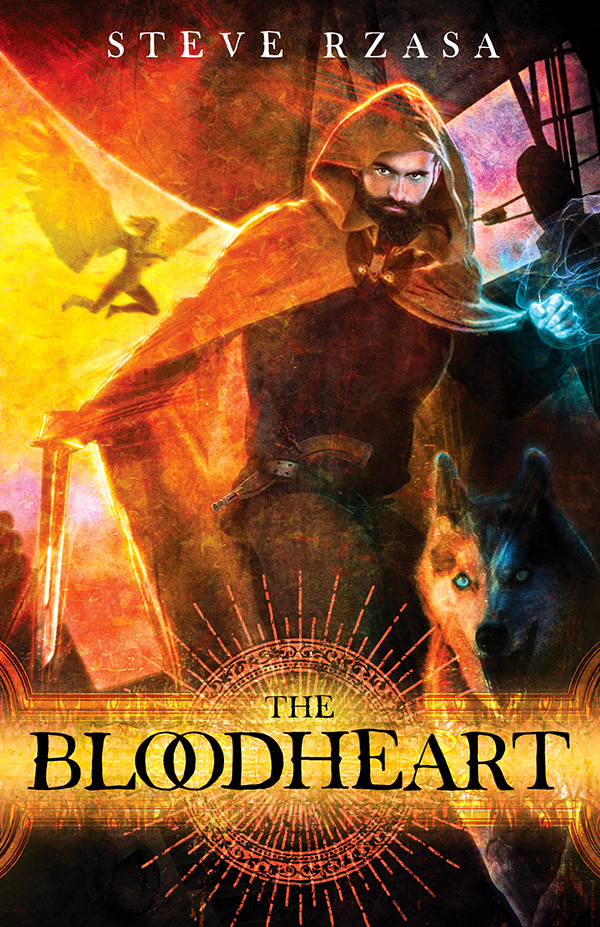
“While The Bloodheart offers a fairly straightforward episodic quest, its sequel The Lightningfall breaks new narrative ground.”
— Lorehaven Magazine
I recently read a sarcastic comment online, through which one could sense the eye-roll, that you couldn’t have a Christian geek talk without a C. S. Lewis quote coming out. Kind of like mentioning Christians who are fantasy fans who hold up Tolkien as their patron saint.
In all fairness to the geeks and Lewis himself, where else are we to go to find philosophy that mixed faith and rocket ships? Few people indulge in serious thought on the matter.
In the sixties, Russian cosmonauts made what they thought was a clever communist-atheist statement: they’d been to space and hadn’t found God. Lewis, like many Christians, gave a big shrug, and he put his lack of concern this way:
“Space travel really has nothing to do with the matter. To some, God is discoverable everywhere; to others, nowhere. Those who do not find Him on earth are unlikely to find Him in space. (Hang it all, we’re in space already; every year we go a huge circular tour in space.) But send a saint up in a spaceship and he’ll find God in space as he found God on earth.”
It’s that last line that influences my writing. When you pick up a book of mine, no matter how far-future the space opera, you’re going to find Christians in it. Why? Because I have an agenda to push, or a message to preach? In a tiny way, yes, but really, name for me a book that doesn’t carry forward the author’s philosophy and I’ll show you something penned by a robot. The author’s beliefs bleed into a story, no matter how overt or covert he or she chooses to be.
Christian characters are needed, especially in science-fiction, but not to preach a message and not to show them being holier-than-thou. They need to be present to show how the faithful would live their lives in a far-off galaxy, and how their beliefs would be shaped by humanity’s expansion into deep space.
Christian trek
 My characters in stories like The Face of the Deep series or the Vincent Chen novellas are Christians who are familiar with persecution. They interact every day with those who do not believe, so theological discussions take place. They read Scripture and go to church or, in the case of the Rescue Ops crew in Broken Sight, have chaplain’s services aboard their starship light-years from Earth.
My characters in stories like The Face of the Deep series or the Vincent Chen novellas are Christians who are familiar with persecution. They interact every day with those who do not believe, so theological discussions take place. They read Scripture and go to church or, in the case of the Rescue Ops crew in Broken Sight, have chaplain’s services aboard their starship light-years from Earth.
Why should anyone care about that?
Because books, live movies, tend to strip modern-day religion from their stories as if no one in the future will attend a church or participate in the Lord’s Supper. These are not strange, rare occurrences. These are weekly and sometimes more often events that believers take part in. To leave them out of a story, while emphasizing other aspects of a culture, is, in a sense, lazy.
It’s one of the biggest beefs I have with Star Trek—the idea that within a few hundred years, all organized religion will simply disappear. The double-standard, of course, is that alien religions are treated with curiosity and respect. It’s part of the credo of the United Federation of Planets, this approval of diversity. And yet it’s humanity who comes across as monolithic, in the newer versions of Trek more than in the original. At least the 1960s crew of the U.S.S. Enterprise had some accents to distinguish them. Everyone on the U.S.S. Discovery sounds like they’re from generic America, even though they are a mix of races and cultural backgrounds.
An eye to the future
Christianity will not disappear from civilization, no matter how it may be declining in the United States in Europe—because, for one, it is on the rise in Africa and other nations. This ebb and flow of the religion happens throughout history, during times of persecution and endorsement.
I depict how things could be for Christians in the far-future, in a galaxy of new worlds and cultures. How will the faithful be treated? Where will they go? How will they communicate?
I think it’s important for people to read books in which Christians are depicted fairly and realistically, as true individuals who are as flawed as the next sinner, but who rely on the promises of Christ for the hope in a better life now and the best to come in eternity. To see believers as real, not as caricatures of either perfection or villainy.
Because you love books with characters who are true to life, then reading about people who pray when times get rough or who go to church to worship and commune with their brothers and sisters in the faith will give you a true taste of humanity.
“While The Bloodheart offers a fairly straightforward episodic quest, its sequel The Lightningfall breaks new narrative ground.”
— Lorehaven MagazineExplore Steve Rzasa’s novels The Bloodheart and The Lightningfall in the Lorehaven Library.
Read our full review exclusively from the summer 2018 issue of Lorehaven Magazine!













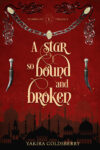
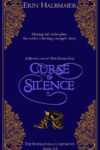

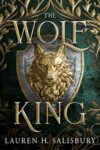


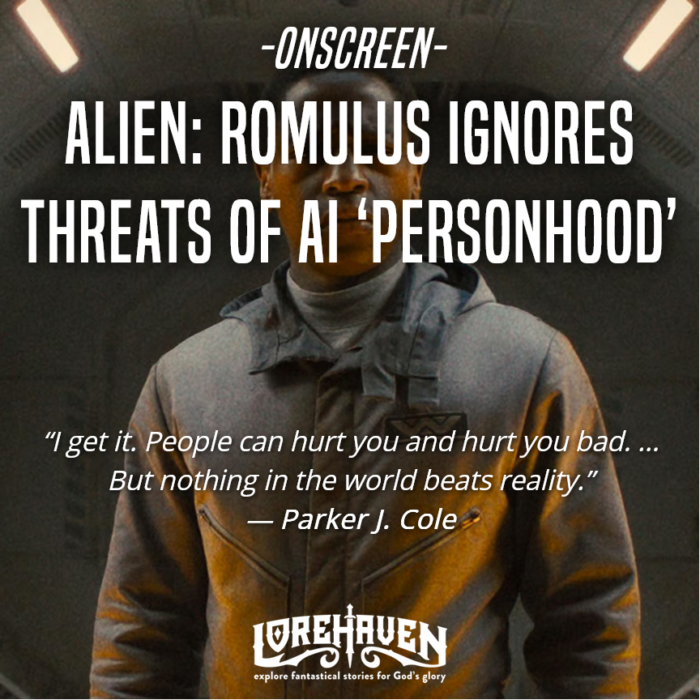

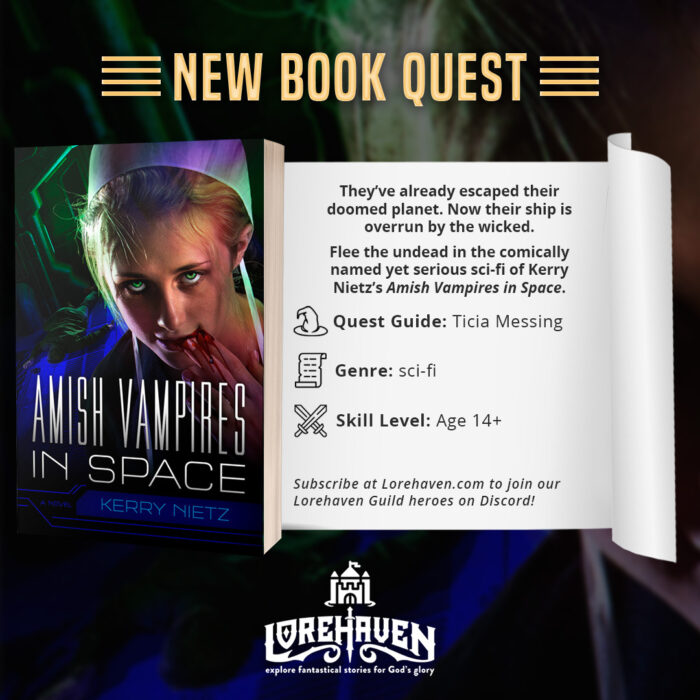










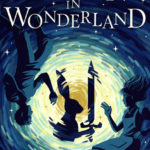
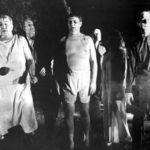





While I didn’t care much for the series in general (I know, blasphemy!), at least Babylon 5 gave a nod to religions (yeah, mostly as quaint little customs, but better than most SF). The almost complete lack of any religion is one big reason why my interest in SF and fantasy dwindled over the years. I’ll have to check out your work!
I also thought of Babylon Five while reading this article. And if I remember correctly the creator/producer/head honcho (whose name escapes me) was actually agnostic, at best. And he represented religion more fully than the others. Whooda thunk it?
Yeah, Steve, I see the exclusion of religion from views of the future in science fiction as almost a form of wish fulfillment by science fiction authors–they don’t care for religion, so they want to portray it as having gone away. Or, alternatively, they perceive religion as not representing anything other than temporary cultural arraignments (caused by superstitious people) and so they create new religions, often wacky ones, as in Mad Max Fury Road.
I think simply putting Christian characters into futuristic contexts in stories affirms that Christianity represents something more than a cultural whim (it represents God in action), that it will continue to exist, no matter what. I think portraying Christians in science fiction stories, even if they are in no other way Christian, is a worthy goal.
Though I have to say, I felt the premise of your book, For Us Humans, struck me at first as if you were agreeing that Christianity is so fragile or such a particular societal construct that it would not survive contact with aliens…which I think a lot of people who are science fiction fans imagine to be true. But it was good to see in the end that the story was more like, “EVEN IF meeting aliens destroyed Christianity, it would rebound.”
Keep up the good work!
Thanks, Travis. I agree with your take on it being “wish fulfillment”, for sure. I appreciate your comments about For Us Humans. What I was shooting for was the implication that there are “believers” who would fall from the faith, not necessarily that Christianity was fragile – because, after all, Christ’s teachings are far more durable than his followers are.
The first example I can think of when I think of Christians in sci-fi is David Weber. The two series’ I’ve read (or am reading) of his are Honor Harrington and Safehold. A few mold SPOILERS follow:
The Honor Harrington books have the planet Grayson, which was settled by a church whose members left earth due to a religious schism over the use of technology. Then their new planet turned out to have an extremely toxic environment, and their church winds up splitting again. They’re generally portrayed positively as smart, brave, and loyal people (there are some bad ones, but that’s true for every world in the Honorverse).
Safehold is . . . another thing altogether. As a last-ditch effort to save humanity from aliens, the survivors are hidden on another planet. But then some of the leaders go too far, and decide that the only way to save humanity is to create a false religion to suppress all modern technology, while also setting themselves up as archangels to be worshipped. The main conflict of the series revolves around those who believe them (even nine centuries later, when they aren’t around anymore) and those who know the truth.
I agree with the way you write. In my opinion not having Christians in a story is ludicrous because God and Christianity are reality. People getting saved may happen in a story but can also be too sappy. I haven’t read any of your books yet but because of your philosophy, I’ll definitely give them a try. Humanists have been thinking Christianity would evaporate all along since Jesus and the Pharisees. Happily, they are wrong! God says the last enemy to go before Christ returns is death, meaning humanism dies before that. We have victory on earth during real time, not just once Christ returns. (That’s a story idea for you. ?) 1 Corinthians 15:24-26. May God continue to bless your work. Looking forward to meeting you one day, in Heaven. ???
Clever and imaginative as he was–he loved his fellow humans–Gene Roddenberry was a secular humanist. Expecting him to praise Christianity is unrealistic. Like reading the Divine Comedy for astronomy lessons.
The reason the Federation respected the religions of various planets they visited was they opposed interfering with the evolutionary process. When the humanoids had evolved enough they would realize how silly and illogical religion was just like the Vulcans and humans had.
You might like the books by Karina Fabian, especially _Discovery_ which features interesting nuns in space.
You wrote: “The double-standard, of course, is that alien religions are treated with curiosity and respect. It’s part of the credo of the United Federation of Planets, this approval of diversity.”
This is not sci-fi or the future. I’ll fix it: “The double-standard of American liberals, of course, is that non-Christian religions are treated with curiosity and respect. It’s part of the credo of liberalism, this approval of diversity.”
The world we live in today.